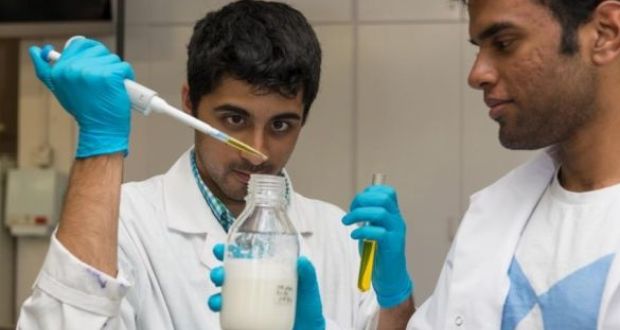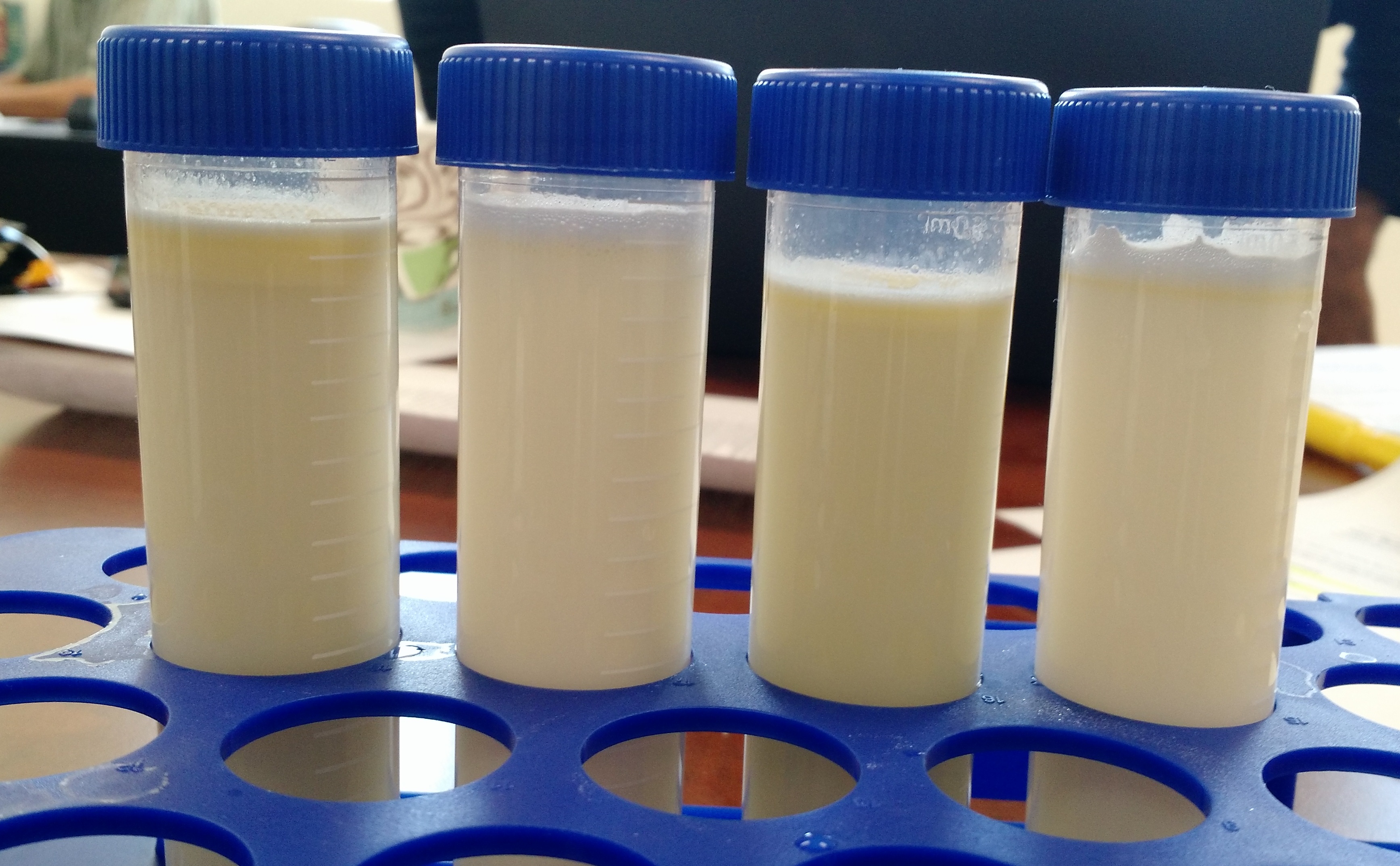
Perfect Day dairy-free milk founders Ryan Pandya and Perumal Gandhi. Photos via New-Harvest.org.
While many countries across the world continue to eschew virtually all food creations originating from the lab rather than the farmstead (especially in Europe, where nearly 20 countries banned GMOs in 2015), the United States continues to utilize lab-created food making techniques.
This emerging way of creating food places scientists at the forefront of food production, not farmers.
In many cases, lab-made food companies start with admirable goals of ending or minimizing animal suffering, reducing greenhouse gas emissions, and other similar missions.
But critics wonder why these novel foods are being rushed to market without long term safety testing at a time when increasing amounts of synthetic foods are being allowed into the U.S. supply.
Within the few years, the company JUST made headlines by announcing its lab-grown chicken nuggets made from feathers.
Along the same vein, lab-created “gene silenced” GMO foods like strawberries and wheat are also in the pipeline after a recent $125 million deal with Bayer, the company that purchased Monsanto.
Next up could be 3D printed dairy milk, ice cream and much more, made from gene-sequenced milk and genetically modified yeast.
$40 Million Startup Developing Gene-Sequenced Milk Made from GMO Yeast
The brainchild of Ryan Pandya, formerly of the biotech and vaccine company MassBiologics, and co-founder Perumal Gandhi, the company Perfect Day aims to produce cow-free milk.
This new type of dairy is made from food grade GMO yeast that has been altered through gene sequencing and 3D printing to produce proteins identical to those found in cow’s milk.

Samples of the Perfect Day milk substitute product.
“We can’t help it. We love cheese,” the two co-founders state on their website, adding that the yeast does not end up in the final product.
“We thought: Why give up our favorite foods? There must be a better way. And so we brought together a diverse team of chefs, food developers, scientists, engineers, and marketers to achieve this goal.”
According to a 2015 study from Mark Steer of the University of West England, who reached out to Perfect Day to conduct a preliminary life cycle analysis and environment impact study on animal-free brewed milk compared to milk from cows, significant potential environmental benefits could result.
His research found that the Perfect Day lab created milk produced 84% fewer greenhouse gas emissions, had 98% less water use, 91% less land use, and a 65% reduction in energy use compared to traditional dairy.
Dissenters say that this type of lab created food is not necessary because of the potential of grass-fed dairy products and regenerative agriculture for sequestering carbon and fighting climate change.
But these products have already reached store shelves, including in ice cream form recently through the product Brave Robot, which utilizes Perfect Day technology as one of its base ingredients.
This type of synthetic ice cream is being sold at health food stores and grocery stores alike.
With $40 million in backing from a host of investors, the company hopes to place its products on store shelves in more places.
“We’re developing a toolkit for the food industry,” says Pandya to Forbes.
“Because we’re making those functional ingredients, we can work with every brand under the sun that’s currently buying dairy ingredients and help them to move their food products in a greener direction.”
The whey protein that tastes like vanilla ice cream! Organic and pasture-raised (find it here), this is the best whey protein I have ever tried. Get yours by clicking on this link
Thanks for installing the Bottom of every post plugin by Corey Salzano. Contact me if you need custom WordPress plugins or website design.




